Connect with an Advisor to explore program requirements, curriculum, credit for prior learning process, and financial aid options.
Public Safety Faculty
Purdue Global Leadership

Miranda Brand is the dean and vice president of the College of Social and Behavioral Sciences and School of Aviation at Purdue Global. Brand's areas of expertise are in leadership development, industry partnerships, faculty mentoring and new program development. As dean, Brand oversees more than 700 faculty members across 45 academic programs and five academic departments. She also cultivates the more than 1,000 college-industry partnerships that the college maintains. Brand’s experience in education allows her to focus on student success while serving almost 11,000 students who are pursuing degrees at the doctoral, master’s, bachelor’s, associate and certificate levels.
Since 2011, Brand has served as the associate dean of the College of Social and Behavioral Sciences. In this role, she facilitated the development and launch of twelve degree programs in the college, served on numerous university cross-functional action teams to promote institutional improvements and worked with then Dean Sander for over a decade to create and implement a strong college-industry partnership program for students and employer partners. Additionally, she has served in faculty and department chair positions within the college since joining the University in 2006. Prior professional experience includes 20 years of public education service in various roles including teacher, curriculum coordinator, district staff development presenter, and school administrator.
Education: EdD, Nova Southeastern University; MA, Educational Leadership, Fayetteville State University; BS, Education, Methodist University
Miranda Brand Link
Bridget Rivera is the associate dean and has served as the psychology department chair since 2019 at Purdue Global. She joined the University in 2009 as an adjunct instructor, and then worked as a full time faculty member from 2014-2019. Prior to joining Purdue Global, she worked in a variety of mental health settings, including private practice, community mental health and inpatient treatment centers.
Education: Education PsyD, California School of Professional Psychology; MA, California School of Professional Psychology; BA, University of California, Santa Cruz
Certifications: Licensed Psychologist, Florida Qualified Supervisor, Master Addiction Counselor (MAC)
Publications: Viglione, D. J., & Rivera, B. (2013). Assessing personality and psychopathology with projective tests. In I. B. Weiner (Series Ed.) & J. R. Graham & J. A. Naglieri ( Vol. Ed.), Handbook of Psychology: Vol. 10 Assessment Psychology 2nd ed. New York: Wiley.
Rivera, B. & Viglione, D.J. (2010). Conceptualizing children’s interpersonal relatedness utilizing the Rorschach: A qualitative multiple case study. Journal of Personality Assessment, 92 (5) 377-389.
Honors and Achievements: 2020 Outstanding Leadership Award from the College of Social and Behavioral Sciences, 2010 Martin Mayman Award for distinguished contribution to the literature, awarded from Society of Personality Assessment
Memberships: American Psychological Association, Division I Member (APA); Society for Personality Assessment (SPA); The Association for Addiction Professionals (NAADAC)
Research Interests: Psychological assessment, specifically the Rorschach, cultural competence and eating disorders
Bridget Rivera Link
Tessa Holst currently serves as the assistant dean of students within the College of Social and Behavioral Sciences where she oversees and generates initiatives to develop student engagement and improve student retention. She is also responsible for problem identification and resolution for second-level student complaints and conflicts. Prior to her current role, Holst served as the graduation director and event planner within the Provost Office. She was responsible for bi-annual graduation event ceremonies, celebrations, and faculty retreats. She has worked in higher education for over 25 years and recently completed her second term as school board member for her local school district, having served for 4 years as president.
Education: MS, Kaplan University (now Purdue Global)
Honors and Achievements: 2017 Social and Behavioral Sciences Outstanding Non-Academic Support Team Award (Kaplan University), 2005 Hero Award (Kaplan University), 2003 Extra Mile Award (Kaplan Higher Education)
Tessa Holst Link
April Hrabar has been with Purdue Global since 2020 as an instructor with the School of Nursing. Before joining the Purdue Global team, Hrabar was the administrator of an online undergraduate health sciences program and the senior leader of a multi-leveled nursing department. In her 15 years’ experience in higher education, she has focused on adult and non-traditional learners, online instruction, program development and expansion, and institutional and programmatic accreditation.
As part of her passion for connecting students with global initiatives, she was previously the founder and executive director of an organization providing aid and medical care for Indigenous people of the Amazon Rainforest. Through this foundation, she has immersed students and faculty in life-changing cultural experiences to make a positive impact in these fragile communities. She continues to pursue community outreach in promotion of global health and wellness.
Education: EdD in Educational Leadership, Liberty University; MSN in Nursing Education, Liberty University; BS in Nursing, University of Maryland
Honors and Achievements: Nurse Leadership Institution Fellow (2010); Corporation for National Service National Service Award (2002)
Research Interests: Professional behaviors, writing skills, faculty and student engagement in online environments

Richard Niebusch began his career with Purdue Global in 2005. During his tenure, he has instructed courses in the Criminal Justice Program in a variety of topics. In addition, he has engaged in the roles of curriculum developer, course leader, and as an evaluator of course credit petitions. Richard possesses three decades of professional law enforcement experience having served in the role of police officer, detective, trainer, and administrator. Niebusch has also served as a certified police academy trainer for more than two decades. His experience also includes international instruction in criminal justice reform and anti-terrorism programs through both the U.S. government and international agencies engaging in program management and instruction in numerous countries around the globe. Finally, Richard serves as an editorial board member for the International Journal of Emerging Multi-disciplinaries in Social Science (IJEMD-SS).
Education: PhD, Capella University; MS Psychology (Organizational Development) Central WA University; BA Society & Justice, University of Washington
Publications: Beaudry, A., Schepman, S., Gunn, G., Lettic, S. & Niebusch, R. (2006, May). The Effects of An Incentive Program Intervention on Driver Performance in a Private Non-Profit Agency. Journal of Business & Economics Research, 4(5), pp. 83-91.
Niebusch, R. & Moran, N. (2019, June). Conservation of resources, burnout, and other selected behavioral variables among law enforcement officers: A quantitative analysis. International Journal of Crime, Law and Social Issue, 6(1), pp. 1-31.
Niebusch, R. (1999, June). The effects and police specialty unit on urban crime. Central Washington University Publications.
Presentation: Ireland, an OD future search: Remembering yesterday, living today, thoughts for tomorrow. Presented at the 18th Organization Development World Congress (1996).
Certifications: Peace Officer Certification, State of WA (1993)
Honors and Achievements: Best Paper, Clute Institute for Academic Research, EABR & ETLC Conference, Ljubljana, Slovenia 2007; Best Paper, Clute Institute for Academic Research, EABR & ETLC Conference, Las Vegas, NV 2011; President’s Award, International Association of Law Enforcement Analysts, 2009; Distinguished Member Award, National Society of Collegiate Scholars, 2010.
Research Interests: Public service “burnout,” de-policing, evidence-based “best practices” in policing
Richard Niebusch Link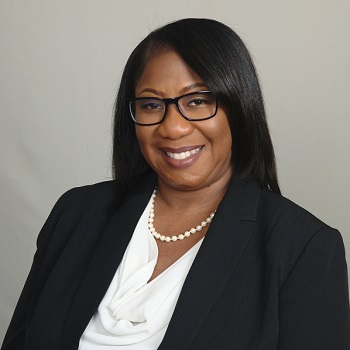
Tomicka Williams serves as the assistant academic chair for the Department of Undergraduate Criminal Justice programs at Purdue Global. Before moving into a full-time position as an assistant academic chair, Williams was an adjunct faculty member for many years. Additionally, she served as a course leader and Institutional Review Board member with the University. Her experience includes teaching and curriculum development, as well as human resources and city government.
Education: PhD, Walden University; MA, Nova Southeastern University; BS, Florida A&M University
Publications: Examining Social Change and Social Responsibility in Higher Education
Honors and Achievements: Outstanding Faculty (Purdue Global), presented at traditional and nontraditional conferences with Purdue Global, American Society of Public Administration (ASPA), Conference of Minority Administrators (COMPA), and FEMA Higher Education
Memberships: American Society of Public Administration (ASPA), International Associate of Emergency Managers (IAEM), Southern Criminal Justice Association
Research Interests: Human and nonhuman agents in homeland security, crisis communication systems in K-12 and higher education, diversity and inclusion in Homeland Security and Emergency Management
Tomicka Williams Link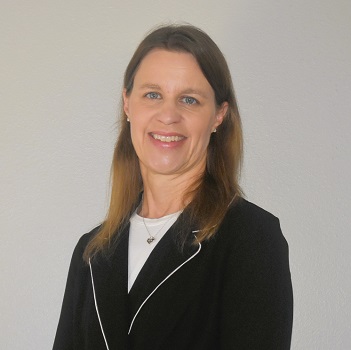
Aline Major is the assistant academic department chair for the Purdue Global Public Safety Program. Major has more than two decades of higher education experience in both traditional and online environments and began teaching as an adjunct with Purdue Global in 2005. She also has served as a course leader, faculty mentor, and been involved in curriculum revision and development for numerous courses. Most of her practical experience has been focused on juvenile justice and juvenile corrections.
Prior to her teaching role, Major served as principal investigator and data analyst for the National Youth Gang Center assessing gang presence and activity throughout the US. She also worked with the Juvenile Justice Educational Enhancement Program where she was involved in evaluating educational programs in Florida’s juvenile correctional facilities and examining community reintegration outcomes among youth released from those facilities. In both positions she worked closely with local, state and federal agencies to conduct research, develop effective programming and training, and inform criminal justice policy and practice based on data driven outcomes.
Education: MA, George Washington University; BS, The College of William and Mary
Memberships: American Society of Criminology, Academy of Criminal Justice Sciences, Southern Criminal Justice Association
Research Interests: Juvenile delinquency, corrections, psychology and crime, victimology, education and crime, crime and delinquency in the life course, and youth gangs
Purdue Global Full-Time Faculty

Thomas Anderson has been teaching in various capacities since 2001 and has been with Purdue Global since 2009. Anderson has over 31 years of law enforcement experience and was the police chief in Statesville N.C. from 2008-2015. Additionally, he maintains his sworn officer status by serving part-time as a special agent with the North Carolina Department of Insurance Criminal Investigations Division.
Education: MS, University of Cincinnati
Certifications: North Carolina certified law enforcement officer; North Carolina certified training instructor; North Carolina certified firearms instructor
Honors and Achievements: Police Chief 2008-2015; Asst. Police Chief 2006-2008; Lieutenant Commander 2001-2006; President of the North Carolina Police Executive Association, 2013–2014; Advanced Law Enforcement Certification 2001
Memberships: International Association of Chiefs of Police; N.C. Association of Chiefs of Police
Research Interests: Life course criminology; law enforcement topics
Thomas Anderson Link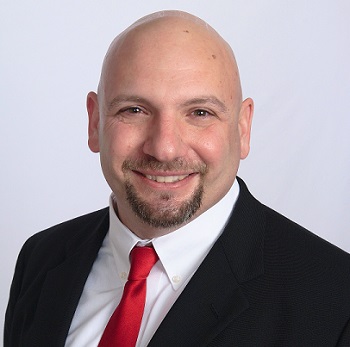
Daniel Bilodeau received his Masters Degree in Public Safety Administration and started his academic career in 2007 with Kaplan University (now Purdue Global) in the Criminal Justice Program where he continues to teach. Bilodeau has been in law enforcement for over 20 years and has worked in corrections, court services, and many aspects of police work including administration of a large criminal justice organization and has been selected as "Police Officer of the Year." In addition to academic training, he has attended multiple training and administration programs pertaining to law enforcement and criminal justice.
At Purdue Global, Bilodeau teaches courses on the Criminal Justice System and Criminal Investigations along with Introduction courses. He has also taught in the Fire Sciences Program.
Honors and Achievements: Outstanding Faculty Member Award 2017
Daniel Bilodeau Link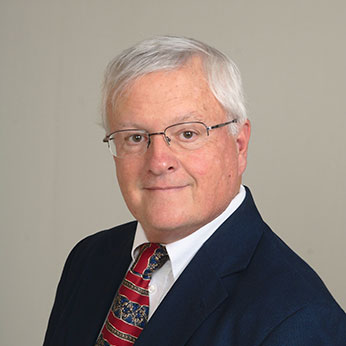
Terry Campbell began his Purdue Global career in 2003 and helped write the corrections curriculum; he currently teaches undergraduate classes. Additionally, he serves as course lead for a number of courses focusing on the prison system and corrections. Campbell started his academic career at Western Illinois University where he served on various committees; he has since retired from the corrections field. Campbell has presented at numerous University service events; presented at the American Correctional Association Conference; serves as a chair, distance education and program specialist for the Accrediting Council for Independent Colleges and Schools; and serves as distance education and program specialist for the Accrediting Bureau of Health Education Schools.
Education: MPA, University of Arkansas at Little Rock
Publications: Corrections Today: American Corrections Association, regular contributor to corrections.com
Honors and Achievements: Outstanding Full-Time Faculty Award (Kaplan University)
Terry Campbell Link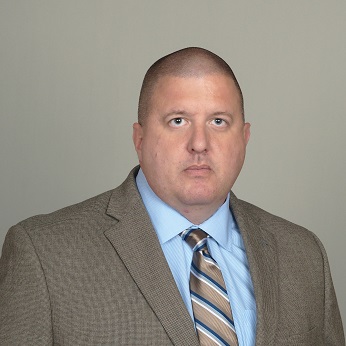
Derrick Clouston has been a fire and emergency management professor for 9 years. He started his academic career at the University as a course developer and was hired as an adjunct professor in the fire and emergency management program. As the program grew he moved on to a full-time faculty role. He currently teaches various courses, and assists in numerous innovations in curriculum. Clouston has held numerous positions on state and national boards throughout his career. He earned his Executive Fire Officer from the National Fire Academy and is also a Chief Fire Officer and Chief Training Officer Designee from the Commission on Professional Credentialing. In addition, he has presented at several symposiums and authored articles for various national professional fire service publications.
Education: MPA, University of North Carolina at Pembroke
Publications: On file at the National Fire Academy Learning Resource Center
Derrick Clouston Link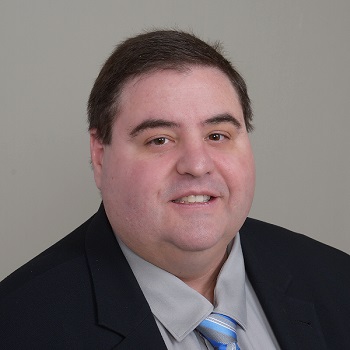
Brian Danigole has been instructing criminal justice at the college level since October 2008 and with the University since 2010. In the professional world, Danigole began working as a law enforcement practitioner in 1994. During that time, he worked in criminal patrol, street crimes, narcotics, K-9, robbery, burglary, and economic crimes. He has worked in federal task forces consisting of local, state, and federal partners conducting safe street gang operations and narcotics trafficking. Danigole has also been a certified crisis negotiator for 17 years.
Education: MS, University of Phoenix
Certifications: Certified Crisis Negotiator, FBI’s National Instructor Development course, national certification through the FBI and the Louisiana POST Council, Louisiana POST Certified Law Enforcement Officer
Honors and Achievements: 2008 Slidell Elks Lodge Deputy of the Year, 2008 Louisiana American Legion District, Regional, and State of Louisiana Law Enforcement Officer of the Year, 2007 St. Tammany Parish Sheriff's Department Deputy of the Year
Memberships: Louisiana Narcotics Officers Association; National Narcotics Officers Association
Research Interests: Law enforcement use of force and vehicle pursuit technology
Brian Danigole Link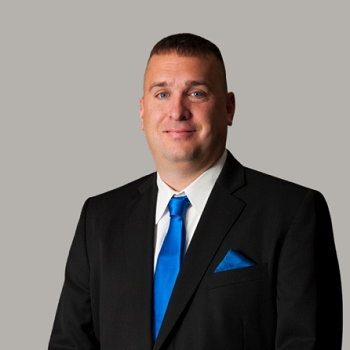
James Ebert began his career with Purdue Global as a part-time adjunct instructor in 2021 and became a full-time professor in 2022. Prior to teaching at Purdue Global, he served as a part-time Adjunct Instructor with University of the Cumberlands beginning in 2017. Ebert’s professional experience includes 20 years of law enforcement, with the last five years serving as Chief of Police in Richmond, Kentucky. Simultaneously, James served a second career in the military reserves. His 20-year military career included service in the United States Marine Corps Reserve and United States Navy where he served in the capacity of both enlisted and as an Officer. From 2010-2016, he serves as a Commanding Officer of three different Navy Reserve Security units.
Education: MS, University of the Cumberlands; BS, Upper Iowa University, Graduate Certificates from the University of Louisville and Purdue Global.
Certifications: Certified Crime prevention through environmental design specialist.
Memberships: Associate Advisor in Alpha Phi Sigma, Kentucky Association of Chiefs of Police
Research Interests: Recruitment and Retention in Law Enforcement, Influences of politics in Law Enforcement
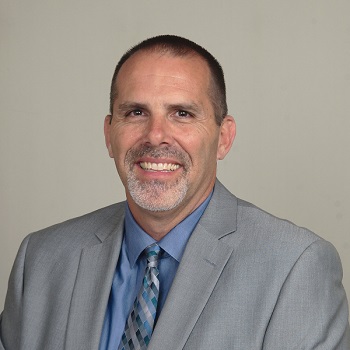
At Purdue Global, Chris Findley teaches criminal justice and forensic psychology courses and participates in the college transfer credit review process. He also serves as a course lead for the University. Upon completion on his PhD, Findley continued to teach at a 2-year college in Georgia in the criminal justice program and in 2012, he joined Purdue Global as a faculty member. Findley has spent the last 23 years working in law enforcement (both part time and full time) in many different positions including a jail setting, patrol, patrol supervision, crime scene supervision, and command level. During his time in the law enforcement field, he taught at several colleges and universities in criminal justice programs.
Education: PhD in Public Safety, Capella University; MS in Forensic Science, National University; BS in Psychology, Georgia College
Publications: The Need for Higher Education in Law Enforcement. POAG (Police Officers Association of Georgia) Magazine 2012.
The Psychology of Officer Survival. POAG (Police Officers Association of Georgia) Magazine 2013.
Summer Conference: A Year of Change. POAG (Police Officers Association of Georgia) Magazine 2015.
Various paper presentations at conferences
Certifications: Georgia Peace Officer training certifications such as firearms, defensive tactics, emergency driving, and basic law enforcement officer
Memberships: Member, Georgia Association of Chiefs of Police; Member, Society for Police and Criminal Psychology
Research Interests: Law enforcement supervision and management
Chris Findley Link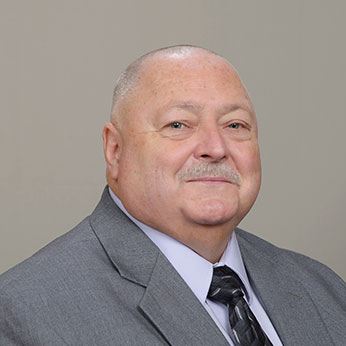
John (Jack) Gibbons is a full-time adjunct professor at Purdue Global, where he teaches numerous criminal justice courses. Gibbons is a 35-year veteran of law enforcement, starting his career as an auxiliary police officer. He worked in suburban Chicago police departments, later joining the Cook County Department of Corrections as a correctional officer and the Chicago Police Department as a police and tactical officer. He was promoted to investigator in 1991; in 1994, Gibbons was promoted to sergeant and served in patrol and investigation units. In 2006 he was promoted to lieutenant and served as a field lieutenant, watch commander, tactical unit lieutenant, mass transportation watch commander, Lieutenants Association representative, and Grievance Committee chairman until retiring in 2012. His teaching career began in 2009 as an adjunct professor for Westwood College.
Education: MS and BS, Calumet College of St. Joseph
John (Jack) Gibbons Link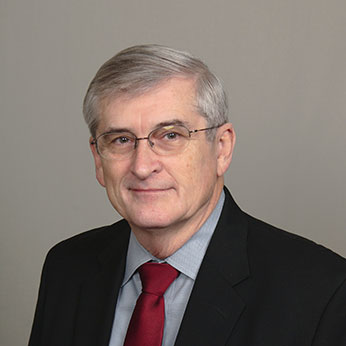
Roger Humber’s career at the University began in 2007 as a criminal justice adjunct, and in 2015, he became a full-time adjunct. He currently teaches various undergraduate criminal justice courses. His teaching style is a combination of student-focused nurturing and application of real-world dynamics in preparing future practitioners for the challenges of a criminal justice career. As a part-time special agent with the Alabama Law Enforcement Agency, Humber contributes 35 years of legacy knowledge back to state service and provides additional value with his academic experience. He is certified to instruct Criminal Law, Report Writing, and Firearms Training by the Alabama Peace Officers’ Standards and Training. In addition, he is a certified instructor for the Run, Hide, Fight–Active Shooter curriculum. He also serves on the Board for the Institute for Criminal Justice Education.
Education: MS, Auburn University at Montgomery
Honors and Achievements: 2017 Outstanding Professor Nomination (Kaplan University), 2016 Outstanding Professor Award (Kaplan University)
Memberships: Academy of Criminal Justice Sciences, Alabama Peace Officers’ Association (serves as Chaplain), FBI National Academy Associates (served as State Chapter President)
Publications: Regular contributor to Alabama Peace Officers’ Journal
Roger Humber Link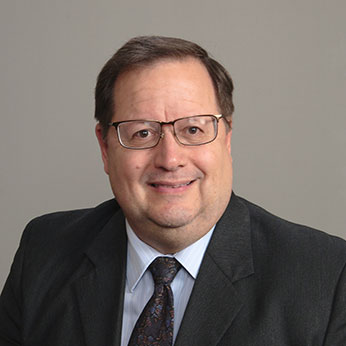
Tim Kozyra teaches criminal justice courses in both the undergraduate and master’s program, in addition to developing and revising courses. Prior to joining higher education, Kozyra served as a correctional officer, deputy sheriff, and criminal defense attorney. He also managed a law enforcement and corrections recruitment academy.
Education: JD, South Texas; MS, Kaplan University (now Purdue Global)
Tim Kozyra Link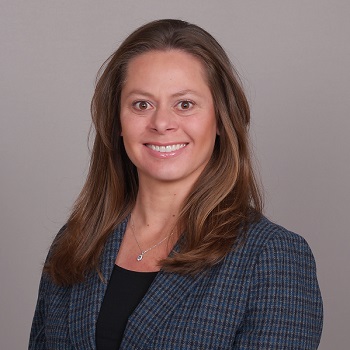
Mary Lannon is a public safety professional with 15 years of experience in police and fire emergency communications. She began her career as a 911 operator/radio dispatcher with the Charlotte Fire Department in North Carolina before spending 11 years as a police communications supervisor with the Phoenix Police Department in Arizona. Lannon has been teaching at Purdue Global (formerly Kaplan) since 2013. She has experience teaching in graduate and doctoral-level public safety programs and chairing dissertation committees. Lannon has served in a variety of roles, such as subject matter expert, course developer, faculty lead, faculty research consultant, comprehensive exam reviewer, and as a member of the faculty curriculum committee and institutional review board. She also has experience as a reviewer and quality assurance auditor for a private institutional review board.
Education: PhD, Northcentral University; MA, American Military University, BA, Arizona State University
Publications: The Role of Leadership in Employee Motivation, 2017; The Human Component of Communications Center Management, 2016; What Is Human Subject Research, 2022
Certifications: Certified Public Manager
Honors and Achievements: Faculty of the Year Award, 2020; Outstanding Professor Award, 2019; Outstanding Achievement in (Adjunct) Faculty Performance, 2014; Author Excellence Award, 2013
Memberships: International Association of Emergency Managers; Academy of Criminal Justice Sciences
Research Interests: Emergency communications; emergency preparedness and response; interagency coordination in counterterrorism; leadership in public safety organizations; organizational behavior
Mary Lannon Link
Jodi Levit’s criminal justice experience includes correctional officer/counselor for Illinois State Police and intelligence crime analyst. At Purdue Global, she teaches undergraduate courses focusing on an introduction to criminal justice and preparing students for a career in criminal justice.
Education: MS, University of Illinois-Chicago; BS, University of Wisconsin-Madison
Jodi Levit Link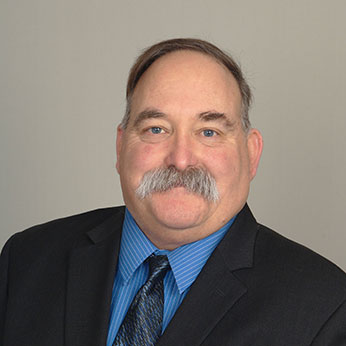
Mead has been a professor in the Fire Science Department for the last 8 years. He currently teaches various undergraduate courses for the fire science program. Previously, he was an adjunct instructor of fire science with Joliet Junior College. Mead has held several administrative positions in public safety including fire chief, chief fire marshal, deputy police chief, and chief of the Special Hazards and Response Team of Will County, Illinois. He was also a founding member of Mabas 19 Training Academy and the Greater South Suburban Fire Investigation Task Force.
Education: MPA, Kaplan University (now Purdue Global)
Jonathan Mead Link
As an Industry-leading Criminal Justice expert, Kristi Pitts has honed skills and refined knowledge across criminal justice, forensic science, and higher education. Pitts is known for consistently creating an environment where students can think critically and communicate viable solutions. With a goal to instruct beyond the curriculum, Pitts provided real world examples from her 15 years of hands on experience in corrections, the court system, and crime scene management. Continuing education is a key portion of Pitts' professional career, as a scholar she has researched key strategies to ensure diversity and leadership development with a criminal justice lens toward coaching, goal setting and reflection.
In addition to the work she's done as a Professor, she has a proven history in: Scientific & Technical Writing, Program Development, Online Learning Techniques, Curriculum Development, Educational Planning. Her passion for criminal justice and higher education allows her to apply experience from different perspectives to resolve unique challenges. Pitts has been highly involved in the development and implementation of new, state approved curriculum, evaluation of existing curriculum, and communication of complex information for public audiences. Pitts is a certified crime scene investigator where she has been featured on The First 48 Presents: Atlanta.
Education: DM, Colorado Technical University; MS and BS, Colorado Technical University
Publications: "Exploring Policy Improvements Criminal Justice Managers Need to Reduce Cultural Bias in a State Correctional System" by ProQuest Dissertations Publishing
Certifications: Fingerprint Classification; Friction Ridge Comparison; Bloodstain Pattern Analysis; Basic Photography and Digital Imaging; Crime Scene Investigation; Latent Print Development; Evidence Presentation; Crime Scene Investigation / State of Georgia / PS1020150017S / Specialized: Jailer / State of Georgia / PBJA0500733: Management Researchers / CITI Program, A Division of BRANY
Honors and Achievements: Implemented / Trained CSI competition team for Atlanta Technical College, 2017 & 2018; Led CSI Competition team for Skills USA Crime Scene Investigation Contest to a win for Atlanta Technical College, 2017
Memberships: British Society of Criminology Organization - Active Member; International Association for Identification Organization - Active Member; National Association of Blacks in Criminal Justice Organization - Active Member; National Criminal Justice Association Organization - Active Member
Research Interests: Diversity & Inclusion, Cultural Diversity, Cultural Bias in a correctional system
Kristi Pitts Link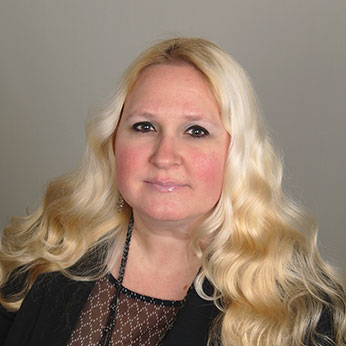
Holli Vah Seliskar has more than eighteen years of experience in higher education. She is a professor and course leader within the Graduate Public Safety Programs, and has served as an academic department chair, assistant academic department chair, and as adjunct professor at Purdue Global. Vah Seliskar currently serves on the College of Social and Behavioral Sciences’ Diversity and Inclusion Action Committee, and previously served as a Chief Difference Maker for the Purdue Global Ambassadors, as a member of the CoSBS’ Spirit and Awards Committee, the Teaching and Innovation Conference Committee, as Faculty Adviser for the Public Safety Club, the Faculty Curriculum Committee, the School Review Team for Criminal Justice, the Center for Teaching and Learning’s Advisory Committee, Innovations Lab, and the Faculty Development Committee. Her previous experience includes working as a Program Coordinator for the United Way of Greater Cleveland, the Cleveland Metropolitan School District, and the Mandel Foundation in Ohio.
Education: PhD in Curriculum and Instruction, Kent State University; MS in Criminal Justice, Tiffin University; BA, Cleveland State University; AA, Atlantic Cape Community College
Recent Publications: Kroeger, J., & Vah Seliskar, H. (2023). Navigating the nexus of subjectivity and trust in researcher/participant relationships. Anthropology & Education Quarterly. https://doi.org/10.1111/aeq.12479
Vah Seliskar, H. (2023). Lost dog found: A “tail” of restorative justice and understanding. Academy of Criminal Justice Sciences’ Dialogue, Restorative Justice Section of the Academy of Criminal Justice Sciences, 8(2), 7-8. http://www.ajcs.org
Vah Seliskar, H. (Ed.). (2023). Restorative justice and practices in the 21st Century. IGI Global.
Vah Seliskar, H. (2022). Harnessing grit: Strategies for building resilience in students. ACJS Today, Academy of Criminal Justice Sciences Newsletter. https://www.acjs.org/page/FrontPageACJSToday
Vah Seliskar, H., Robinson, C., Winokur Early, K., Williams, T., & Johnson, C. (2021). Building capacity through multiculturalism and diversity in the online classroom. In T. Fudge & S. Ferebee (Eds.), Curriculum development and online instruction for the 21st Century. IGI Global.
Winokur Early, K., Vah Seliskar, H., White, D.A., Mead, J.L., & Campbell, W.C. (2021). Original writing in a remix culture: Challenges and solutions for addressing plagiarism. In T. Fudge & S. Ferebee (Eds.), Curriculum development and online instruction for the 21st Century. IGI Global.
Honors and Achievements:
- 2020 Purdue Global, Purdue G.L.O.B.A.L. Distinction Awards, Great Leaders Award
- 2019-2020, Community Service Commendation, Georgia House of Representatives, House Resolution 1421. http://www.legis.ga.gov/Legislation/en-US/display/20192020/HR/1421
- 2018 Purdue Global, Purdue Global Village 2018 Conference; Presentation Award, Best Engagement, for Understanding the Purdue Global adult learner: Keys to success
- 2017 Kaplan University, College of Social & Behavioral Sciences, Outstanding University Service Award
- 2016 Kaplan Higher and Professional Education, Spirit of Kaplan Awards, Shared Values
- 2015 Kaplan Higher and Professional Education, The Kaplan Way Leadership Award, A Great Place
- 2014 Kaplan University College of Social & Behavioral Sciences, The Kaplan Way Award
Memberships: Academy of Criminal Justice Sciences, University Professional and Continuing Education Association, American Society of Criminology
Research Interests: Restorative justice, restorative practices in K-12 and in higher education, restorative practices in the workplace, subjectivity in qualitative research, and best practices in online learning, teaching, and mentoring
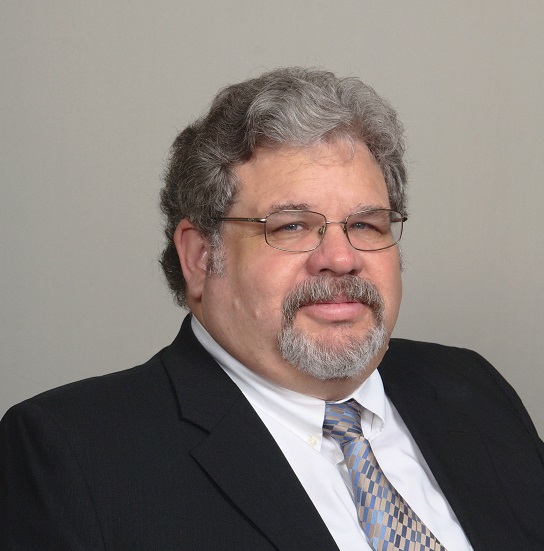
Over the past 20 years, David White has taught criminal justice at the undergraduate and graduate levels, first as an adjunct and now as a full-time professor. At Purdue Global, he teaches various criminal justice graduate courses. He is also a course lead and facilitator for the comprehensive exam. In addition to teaching, he is on numerous committees, including the Institutional Review Board and Professional Competency Committee. Prior to joining Purdue Global, White was a law enforcement officer with over 25 years of service, working in two departments: Ludlow (MA) Police Department and Collier County (FL) Sheriff’s Office. He was a criminal investigator for many years, investigating property and violent crime, then supervised an Economic Crimes Unit.
Education: PhD, Northcentral University; MPA, Florida Gulf Coast University; MS, American International College; Graduate Certificate, Kaplan University (now Purdue Global)
Certifications: Certified Fraud Investigator
David White Link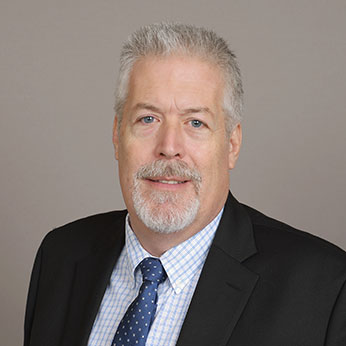
Robert Winters joined the University in 2004 as an adjunct professor in the School of Criminal Justice and subsequently served as an academic department chair, assistant dean of faculty, and assistant dean of curriculum (interim) for the graduate and undergraduate criminal justice programs. He is currently a full-time professor, teaching a wide variety of courses as well as course lead and prior learning analyst. He has also served as a four-term president of the Faculty Senate as well as on multiple academic and administrative task forces and committees. Winters is a prolific writer in the corrections and related areas, and his research is regularly cited in other corrections, criminal justice, and social justice works. He has presented at multiple conferences and University-sponsored events on criminal justice and education-related topics.
Education: JD, Western State University College of Law
Publications: Author of five textbooks in the criminal justice field, Procedures in the Justice System, 12/e (in progress); regular contributor to corrections.com
Robert Winters Link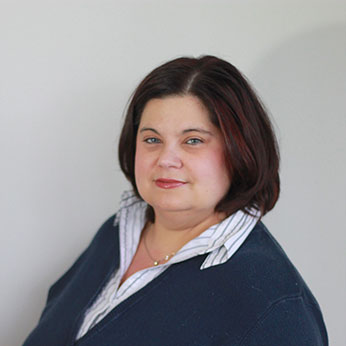
At Purdue Global, Donna Yohman teaches various undergraduate criminal justice courses in areas such as: preparing for a career in public safety, introduction to criminal justice, juvenile delinquency, criminal procedure, and deviance and violence. She also serves as a course lead for the juvenile delinquency courses. Prior to joining the University, Donna Yohman was an arbitrator in the South Carolina Juvenile Arbitration program, working with first-time, non-violent juvenile offenders to divert them from prosecution in the juvenile court system; her emphasis was in rehabilitative behavior.
Education: MS, Kaplan University (now Purdue Global)
Donna Yohman Link